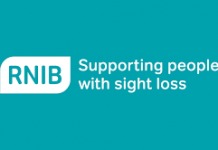 The New York Times Magazine has a long article on Braille and the conflict Braille advocates are having with those who are using new audio technologies. Who would have thought! Everybody has their own axe to grind.
The New York Times Magazine has a long article on Braille and the conflict Braille advocates are having with those who are using new audio technologies. Who would have thought! Everybody has their own axe to grind.
Braille readers do not deny that new reading technology has been transformative, but Braille looms so large in the mythology of blindness that it has assumed a kind of talismanic status. Those who have residual vision and still try to read print — very slowly or by holding the page an inch or two from their faces — are generally frowned upon by the National Federation of the Blind, which fashions itself as the leader of a civil rights movement for the blind. Its president, Marc Maurer, a voracious reader, compares Louis Braille to Abraham Lincoln. At the annual convention for the federation, held at a Detroit Marriott last July, I heard the mantra “listening is not literacy” repeated everywhere, from panels on the Braille crisis to conversations among middle-school girls. Horror stories circulating around the convention featured children who don’t know what a paragraph is or why we capitalize letters or that “happily ever after” is made up of three separate words
.
































It’s interesting how people can turn anything into an ideology. You see it happen with all kinds of “differences”, blind, deaf, religion, social status.
The National Federation of the Blind seems to perpetuate the idea that being blind is a glorious badge of honor with sacred truths (braille) when in reality, like the executive in the story said, being blind is a minor impairment these days. I understand that in the past the stigma people associated with being blind led to this cult like attitude, but it’s no longer necessary. The saying “listening is not literacy” sounds a lot like a curmudgeon saying “it’s always been done this way and that’s the way I like it”. Also, a civil rights organization frowning upon someone trying to read with limited vision? Really? I guess some rights are more equal than others.
That being said, the last few “horror stories” have nothing to do with braille really. Using a computer with voice software anyone can be taught and learn to write.
Braille offers something that mere listening does not: independence. A braille book can be read by anyone with the proper knowledge. Listening requires either access to a narrator or to electronic equipment (some of it specialized), a power supply, and the media (i.e. MP3s, tapes, etc.). In addition, reading and listening are two different learning modalities; pedagogically speaking, it is best to encourage both in order accommodate different learning styles.
Paul and Fred, the problem with blind people not learning Braile is not politics. It’s illiteracy. Imagine if your kids grew up never knowing the alphabet or how to spell anything. Depending only on sound to learn a language means you do not have precision in your words, cannot distinguish between homonyms, cannot look up anything in a dictionary, can’t record your thoughts in a way that anyone (including yourself) can read later, etc. The article gives an example of how non-Braile blind kids suck at writing and are missing tons of knowledge of vocabulary.
Remember, Francis Bacon wrote: “Reading maketh a full man; conference a ready man; and writing an exact man.” Without the ability to write, non-Braile people will have not only vague language, but vague and jumbled thoughts, since they can’t talk to themselves with precision.
These people grow up unable to read, period. Huge mistake.
I see your point, Raymond, but that doesn’t explain frowning on people who are able to read regular print by holding it close to their eyes.
Braille is wonderful, but so is print. Let’s not put *more* limits on people who are already limited.
i don’t have a problem with people holding print books close to their eyes to read — as long as it doesn’t cause further degeneration of their vision. reading is always better than not-reading. whatever you can do, you should do.
but written language is intentionally denser than spoken language. compare the script of a play with a novel, to see what i mean. also, recoding symbols into meaning uses a different part of the brain and forms different synapses than recoding sound into meaning. in terms of brain development, reading braille is truly analogous to reading print. on top of that, how the heck do you highlight passages in an audiobook?
and — why shouldn’t the blind be able to listen to music while they read? 🙂
ideology? nope. i’m not blind. i don’t know anyone who is. but braille seems the most obvious means of granting equal educational opportunity to our blind population. advanced works in science and mathematics really don’t lend themselves well to audio format. total control over review is necessary for retention — review of one’s own process and thinking, as well as of the published literature. pretty sure you don’t need vision to be a mathematician or physicist.